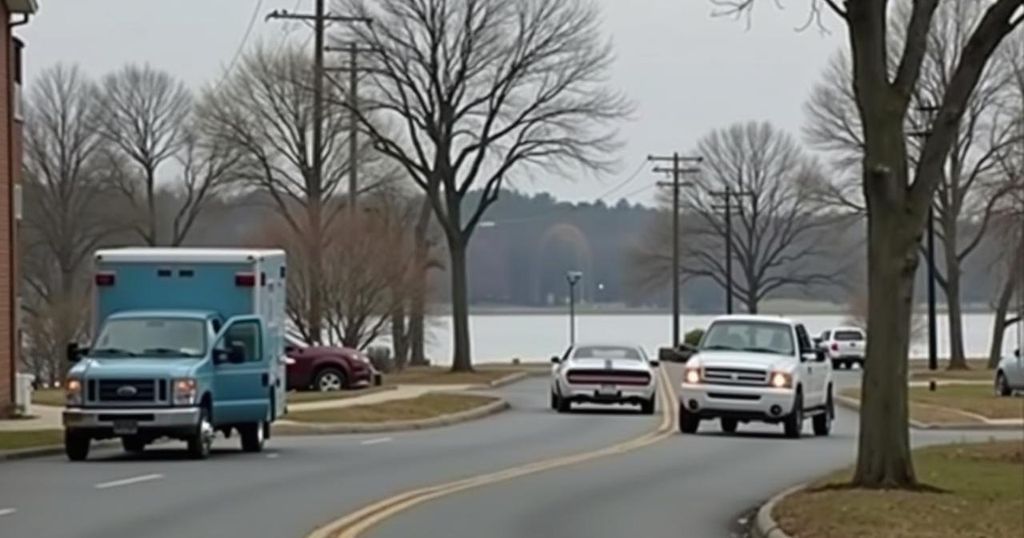FEMA Assistance Interrupted in North Carolina Due to Threats Against Responders
Aid operations from FEMA in North Carolina were temporarily paused due to threats against responders, occurring in the aftermath of Hurricane Helene, which caused severe damage and loss of life in the region. This also coincided with the spread of misinformation regarding federal aid efforts.
Federal assistance to communities affected by Hurricane Helene was temporarily suspended in certain areas of North Carolina due to credible threats directed at Federal Emergency Management Agency (FEMA) personnel. This development unfolded on the weekend, following instances of misinformation related to the federal response to the recent storms. According to Ashe County Sheriff B. Phil Howell, operations were put on hold in Ashe County as a precautionary measure, particularly regarding in-person aid applications in at least two locations. This decision was influenced by reports of threats in several counties, with a confirmation that the aid operations would resume on Monday. Sheriff Howell called on residents to remain calm and collaborative during the recovery process, stating, “stay calm and steady during our recovery, help folks and please don’t stir the pot.” Ashe County, located in a mountainous region northeast of the severely impacted Asheville area, witnessed significant devastation, including flooding and landslides, following Hurricane Helene’s path of destruction across the Southeast after its landfall in Florida last month, resulting in over 100 fatalities and extensive property damage. On Saturday, FEMA activities were also interrupted in Rutherford County, southeast of Asheville, after reports emerged that National Guard personnel encountered “armed militia” threatening FEMA employees, as reported by the Washington Post, based on communications from federal agencies involved in the response. The legitimacy of these threats remains uncertain, prompting FEMA teams to modify their operational strategy and work from set locations rather than canvassing neighborhoods. Concurrently, misinformation regarding the federal aid efforts following Hurricanes Helene and Milton has substantially hindered the response missions. President Biden has solicited information concerning the federal government’s strategies to address this misinformation and enhance transparency. A senior official from the Biden administration remarked that, “The contours of this misinformation are unlike anything we’ve seen before.” Federal agencies have also been directed to intensify social media engagement, showcasing the efforts of government workers involved in debris clearance and aid distribution. Earlier in the month, Rutherford County’s public information officer, Kerry Giles, mentioned the considerable resources expended in debunking misinformation, suggesting that these efforts could have been more effectively allocated to the recovery initiatives occurring in the community.
Hurricane Helene caused catastrophic damage in North Carolina, with extreme flooding and landslides claiming over 100 lives. In the wake of the disaster, FEMA mobilized to assist affected communities. However, the agency’s operations have faced significant challenges, including safety concerns for personnel and the circulation of misinformation, which has complicated the federal response efforts. As communities began recovery, threats against responders forced FEMA to pause some operations, highlighting the tensions and difficulties faced in disaster management in the region.
In summary, FEMA’s assistance efforts in North Carolina have been temporarily halted due to credible threats against responders amidst a backdrop of damaging misinformation. This incident reflects the ongoing challenges federal agencies face in disaster response, highlighting the need for accurate information dissemination and the protection of personnel involved in recovery operations.
Original Source: www.cnn.com




Post Comment